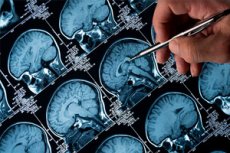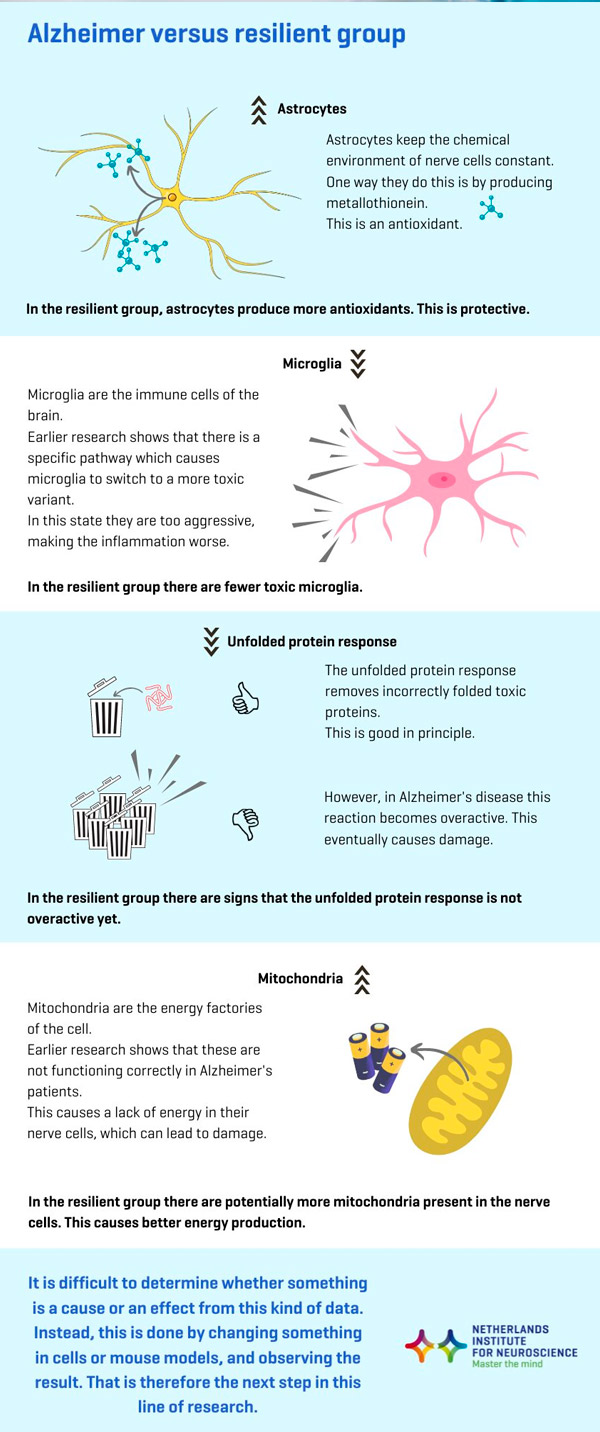New publications
Alzheimer's disease can occur without symptoms. How is that possible?
Last reviewed: 02.07.2025

All iLive content is medically reviewed or fact checked to ensure as much factual accuracy as possible.
We have strict sourcing guidelines and only link to reputable media sites, academic research institutions and, whenever possible, medically peer reviewed studies. Note that the numbers in parentheses ([1], [2], etc.) are clickable links to these studies.
If you feel that any of our content is inaccurate, out-of-date, or otherwise questionable, please select it and press Ctrl + Enter.

Every person ages differently, and factors such as genetics, lifestyle, and environment influence this process. Some people live to 90 or even 100 years in good health, without medications or brain diseases. But how do these people maintain their health as they age?
Luc de Vries from Joost Veraagen's group and his colleagues Dick Swaab and Inge Huytinga examined the brains at the Netherlands Brain Bank. The Netherlands Brain Bank stores brain tissue from more than 5,000 deceased donors with a wide range of different brain diseases.
What makes the Netherlands Brain Bank unique is that in addition to storing tissue with very precise neuropathological diagnoses, they also store a documented medical history and detailed disease course with symptoms of each donor.
Stable group
The team found a subgroup of people who had Alzheimer's disease processes in their brains but did not show clinical symptoms during their lifetime. This is the so-called "resistant" group. But how is it possible that they did not experience any symptoms while others did?
Luc de Vries explains: “What is happening in these people at the molecular and cellular level was not yet clear. So we looked for donors with brain tissue abnormalities who did not have cognitive decline in the Brain Bank. Of all the donors, we found 12, so this is quite a rare case. We think that genetics and lifestyle play an important role in resilience, but the exact mechanism is still unknown.”
"Exercise or cognitive activity and having lots of social contacts may help delay the onset of Alzheimer's disease. It has also recently been found that those who receive a lot of cognitive stimulation, such as through a challenging job, may accumulate more Alzheimer's pathology before symptoms appear.
“If we can find the molecular basis of resistance, then we will have new starting points for developing drugs that could activate the processes associated with resistance in Alzheimer’s patients,” adds de Vries.

Infographic: "Alzheimer's disease without symptoms. How is this possible?" Author: Netherlands Institute of Neuroscience
Alzheimer's vs. Resistant Group
"When we looked at gene expression, we saw that several processes were altered in the resistant group. First, astrocytes seemed to produce more of the antioxidant metallothionein. Astrocytes are like scavengers and have a protective role in the brain. Astrocytes often also ask microglia for help, but because they can be quite aggressive, they sometimes make inflammation worse," continues de Vries.
"In the resilient group, the microglia pathway, which is often associated with Alzheimer's disease, appeared to be less active. In addition, we saw that the so-called 'misfolded protein response', a reaction in brain cells that automatically removes misfolded toxic proteins, was impaired in Alzheimer's patients but was relatively normal in resilient people. Finally, we found indications that the brain cells of resilient people may have more mitochondria, which allows for better energy production."
But what do these differences in processes mean? And are they cause or effect?
"It's hard to tell from human data what process initiates disease. You can only demonstrate that by changing something in cells or animal models and seeing what happens next. That's the first thing we need to do now," says de Vries.
The results are published in the journal Acta Neuropathologica Communications.
